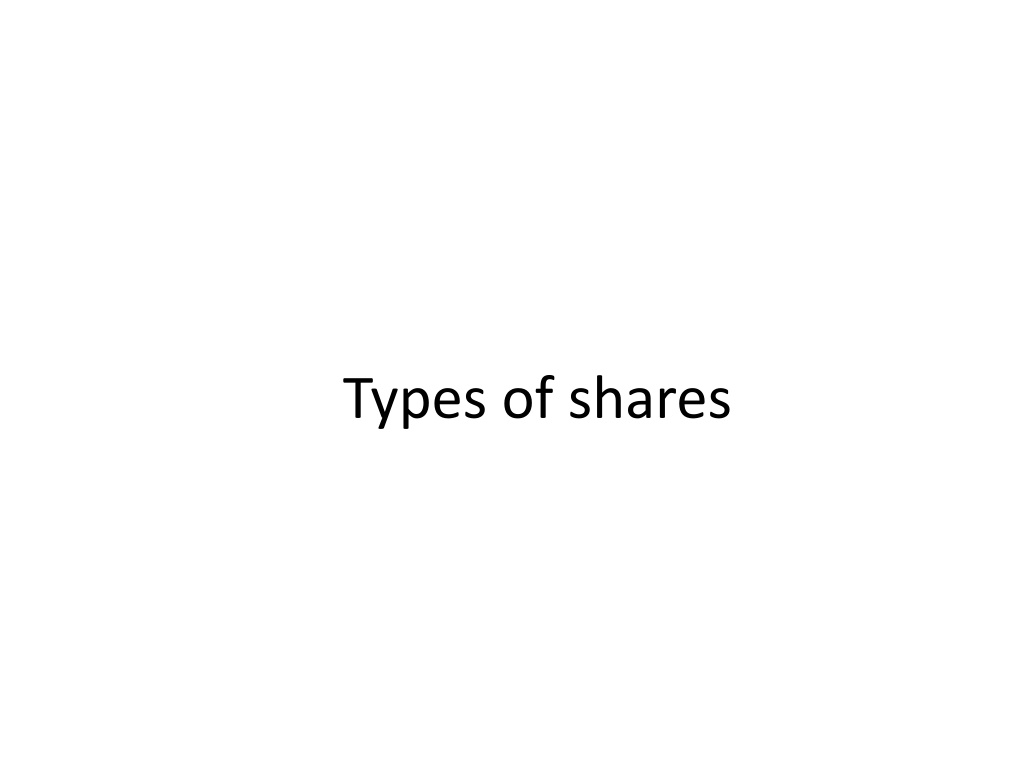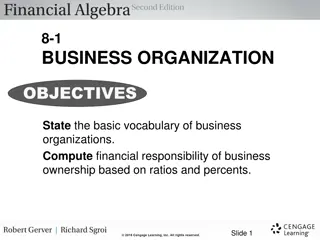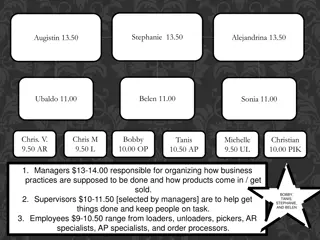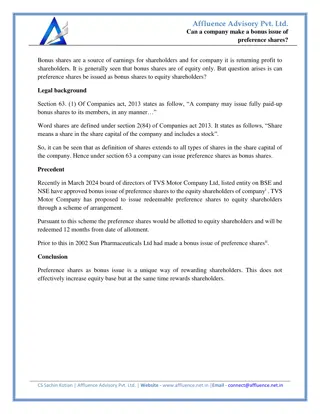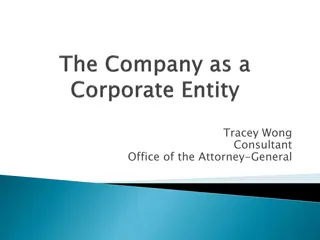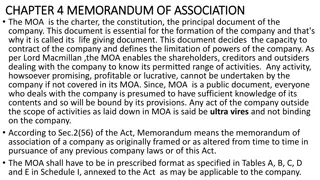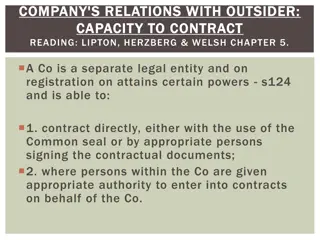Understanding Different Types of Shares in a Company
Shares in a company represent ownership in its share capital, with different classes like preference shares and equity shares offering varying rights and benefits to shareholders. Preference shares can be further categorized into cumulative, non-cumulative, participating, non-participating, redeemable, and irredeemable shares. Additionally, convertible and non-convertible preference shares provide options for conversion into equity shares. Equity shares entitle shareholders to the company's profits after paying dividends to preference shareholders. This comprehensive overview helps in understanding the nuances of shares in a company.
Uploaded on Oct 03, 2024 | 0 Views
Download Presentation

Please find below an Image/Link to download the presentation.
The content on the website is provided AS IS for your information and personal use only. It may not be sold, licensed, or shared on other websites without obtaining consent from the author. Download presentation by click this link. If you encounter any issues during the download, it is possible that the publisher has removed the file from their server.
E N D
Presentation Transcript
What is Share A share is defined as, a share in the share capital of the company and includes stock Share capital of the company is collected by issue of shares. Share is one of the units into which total capital is divided. The person who owns the share is called shareholder.
Classes of Shares Preference shares It offers a fixed rate of dividend. Right to get capital on winding up, before anything is paid to equity shareholders. Equity or Ordinary Share These shares have voting rights. It doesn t offer a fixed rate of return. They are not entitled to get capital on winding up, before paying to preference shareholders.
Types of Preference Shares 1.Cumulative Preference Shares Fixed rate of dividend is guaranteed. At the time of inadequate profit, they will not loss anything. Arrear will get in subsequent years. 2. Non-Cumulative Preference Shares Fixed rate of dividend is guaranteed. At the time of inadequate profit, they will not get anything.
3. Participating Preference Shares Fixed rate of dividend is guaranteed. Entitled to share the surplus profit. 4. Non-Participating Preference Shares Fixed rate of dividend is guaranteed. Does not share the surplus profit.
5. Redeemable Preference Shares Shares which a company may repay after a fixed period of time or earlier. 6. Irredeemable Preference Shares It do not carry the arrangement for redemption. Shares are repayable only at winding up.
7. Convertible Preference Shares It can be converted into Equity shares within a certain period. 8. Non-Convertible Preference Shares It cannot be converted into Equity shares.
Equity Shares It is a share, which is not a preference share is called equity share. The whole of the profit of a company is entitled to these shareholders, after paying a fixed dividend to preference shareholders. They doesn't get a fixed rate of dividend. They will get back their capital only after paying preference share holders.
Sweat Equity Shares It is issued to employees or directors of a company at discounted rate. Issued for consideration other than cash. It must follow these conditions: 1. Authorized by special resolution in general meeting. 2. Number, price, consideration (if any) and classes should be specified in the resolution. 3. The company must complete one year. 4. Equity shares of those company must be listed in recognised stock exchange.
Difference between Equity Shares Nominal value is lower. Dividend varies according to profit. No right for arrears of dividend. No priority in dividend and repayment of capital. Cannot be redeemed. There is more risk. Wider voting right. Control over management. Highly speculative. Ready to take risk and to get greater dividend prefer this. Preference Shares Nominal value is higher. Rate dividend is fixed. Cumulative preference shares get arrears. Priority in dividend and repayment of capital. Can be redeemed. The risk is lower. Limited voting right. No control over management. Less speculative. Not ready to take risk and expect steady income prefer this.
